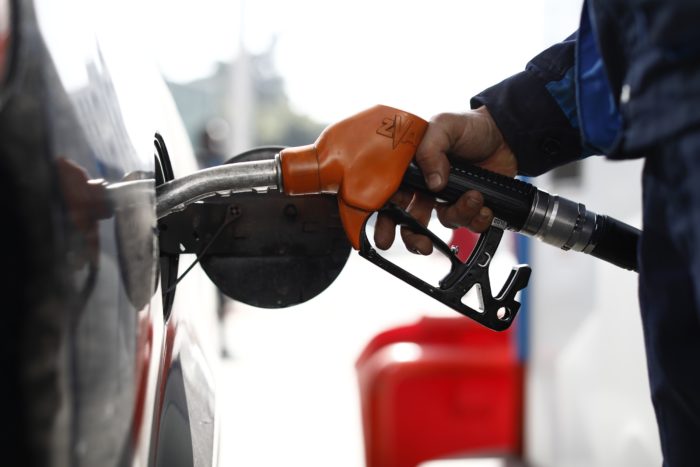Another twist in the Samir case: the Mohammedia refinery has been under judicial liquidation since 2016 and involved in international arbitration proceedings before the International Centre for Settlement of Investment Disputes (ICSID) since 2018.
In July, ICSID ordered the Moroccan state to compensate Samir’s majority shareholder, the Swedish holding company Corral owned by Sheikh Mohammed Houssein Al Amoudi, with $150 million. Recently, ICSID rejected a rectification appeal from the oil group, which had sought $2.7 billion from the Moroccan state, accusing it of unfair treatment since the refinery ceased operations in 2015 due to unpaid taxes and debts totaling approximately $4.5 billion.

And after?
Beyond the resolution of the international dispute, another question remains unanswered: what is the future of the Mohammedia refinery, still under judicial liquidation before the Casablanca court? Opinions are divided between restarting the refinery and permanently closing the site, with significant economic and political stakes at play.
“With the rejection of the ICSID’s rectification appeal, the case is nearly closed. All the excuses invoked by the executive to avoid responsibility for acting to save the Moroccan refinery and relaunch its activity will soon be definitively dismissed. A decision will have to be made,” emphasized El Houssine El Yamani, president of the National Front for the Safeguard of Samir, in a statement to TelQuel.
According to the union leader, around ten “serious” offers to purchase the refinery have been submitted to the Casablanca court in recent years. The most recent, led by American investors partnered with Emiratis, dates back about three weeks. However, these proposals consistently face obstacles due to a lack of “responses and guarantees” from the government, leaving the future of Samir and its 550 employees in complete uncertainty.
“Investing in the refining industry is very costly, and the return on investment is achieved over the long term. Each time a takeover offer is submitted to the court, the investors request a meeting with the authorities to gain a clear understanding of the future of Morocco’s oil industry and the government’s plans for upgrading the industrial zone in Mohammedia. Unfortunately, these questions remain unanswered,” he lamented.
An eternal conflict of interest
The executive branch has so far justified its inaction by stating it could not decide on the refinery’s future while the international arbitration process was ongoing. Now, with a resolution imminent and the ICSID case nearing its conclusion, El Houssine El Yamani urges the government to « take responsibility » and address the matter.
“If the future of Samir is not secured under the Akhannouch government, accusations of conflict of interest would take on full significance”
“For us, this is not just a social issue: it is the future of an entire industry in Morocco. We risk losing valuable expertise if we abandon the refinery, especially when the global hydrocarbons market is evolving so rapidly,” he explains.
For the president of the National Front for the Safeguard of Samir, if the refinery’s future is not secured under the Akhannouch government, it could only result from a “lack of political will,” highlighting the conflict of interest involving the head of government, who owns the Akwa Group, a leading player in Morocco’s energy and fuel distribution sector.
“If the future of Samir is not secured under the Akhannouch government, accusations of conflict of interest against the head of government would become entirely justified. When you lead Morocco’s largest fuel distribution company, you don’t want to disrupt the market by reviving local refining,” he insists.

Beyond political will and the ambition to preserve a national industrial asset, is restarting Samir’s operations truly economically viable and strategically relevant for the national energy sector? According to Amin Bennouna, an expert in energy and energy project development, the relaunch of Samir’s activities warrants analysis from multiple perspectives.
First, restarting the refinery’s operations could generate additional industrial value, especially since Samir’s refined products (fuels, oils, bitumen, etc.) were not limited to the local market. A significant portion of this production was also exported to neighboring countries, particularly in West Africa. Abandoning the refinery would thus deprive Morocco of this economic value at a time when the kingdom is striving to diversify its industry and expand into new markets.
For the expert, the loss of expertise in the refining sector is also a critical issue, with valuable skills at risk of disappearing, as Samir is the only refinery in the kingdom. This loss of expertise could hinder the development of the sector, making it challenging to establish new industrial capacities in the future.
At what price?
Nevertheless, Amin Bennouna emphasizes the cost of restarting Samir’s operations: billions of dirhams would be required to rehabilitate the facilities and equipment and to bring them up to international refining standards, which have shifted from Euro 4 to Euro 6 since the refinery ceased operations.
“Samir does not require more than 2.6 billion dirhams to be restarted”
On this topic, El Houssine El Yamani expresses confidence, stating that several studies have been conducted by various investors who submitted offers to purchase the refinery to assess the cost of restarting operations: “Six months ago, Chinese and Korean experts who worked on restarting refineries in Iraq destroyed during the battles with Daesh produced a clear report: Samir does not need more than 2.6 billion dirhams to be restarted,” he assures.
While the refining sector has undergone significant upheaval in recent years, particularly since the Russo-Ukrainian crisis, the restart of Samir could face stiff international competition, which has become increasingly intense. “There is a global trend toward closing smaller refineries. Margins in the sector are shrinking, and only economies of scale can ensure the sustainability of sites. Refineries producing 13 million tons annually have closed, while we know that Samir produced around 6 million tons,” warns Amin Bennouna.
“Restarting Samir would not necessarily mean a reduction in fuel prices at the pump”
The expert also emphasizes the impact of restarting Samir on fuel prices at the pump, a frequently cited argument. According to him, this impact would be negligible, as refining prices would remain similar to those on the international market. “Currently, the distribution sector has adapted to sourcing fuel wherever it chooses. If you revert to the old rules, you will force Moroccan distributors to source primarily from Samir, which will disrupt their operations. However, that doesn’t mean it will reduce prices at the pump. Refining would cost the same as elsewhere, or even slightly more due to limited capacity, but not less. Today, the issue is more about industrial significance and added value than pump prices,” he concludes.
Written in French by Safae Hadri, edited in English by Eric Nielson




